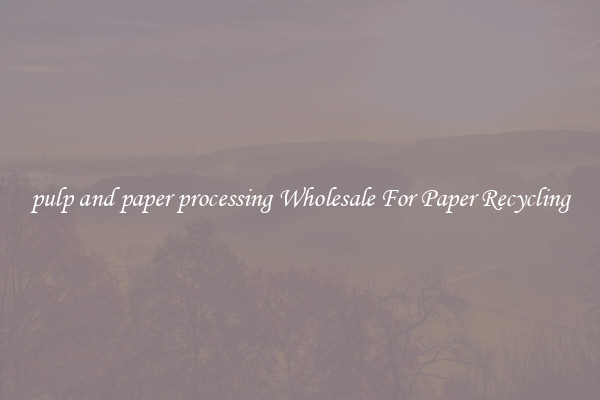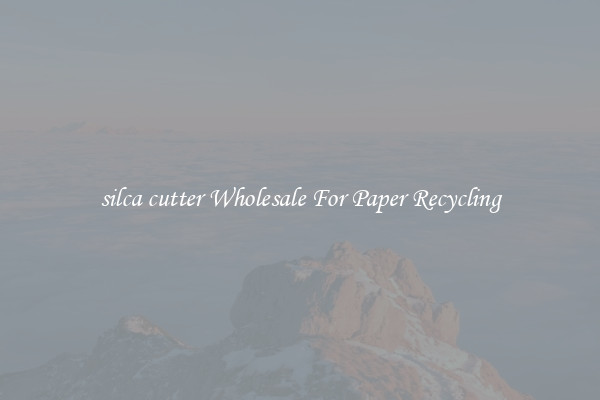pulp and paper processing Wholesale For Paper Recycling
Wholesale For Paper Recycling: An Opportunity for Sustainable Pulp and Paper Processing

Paper recycling plays a crucial role in promoting sustainability in the pulp and paper industry. As the demand for paper products continues to rise, it is essential to implement effective recycling practices to mitigate the environmental impact associated with both pulp production and paper waste disposal. Wholesale for paper recycling is a thriving market that offers immense opportunities for sustainable pulp and paper processing.
Wholesale for paper recycling involves the collection and distribution of recyclable paper materials to pulp mills and paper manufacturing companies. This process significantly reduces the need for virgin pulp, as recycled paper fibers can be used to produce high-quality paper products. Through this wholesale model, both suppliers and manufacturers can collaborate to create a closed-loop system that minimizes waste generation and maximizes resource efficiency.
One of the key advantages of wholesale for paper recycling is the economic benefit it offers to both suppliers and manufacturers. Pulp mills and paper manufacturers can acquire recycled paper materials at a lower cost compared to virgin pulp, reducing their production expenses. In turn, suppliers can sell their collected paper waste to recycling facilities and wholesale distributors, creating a reliable source of income. This economic circularity encourages more businesses to invest in recycling infrastructure, leading to increased recycling rates and a more sustainable pulp and paper industry.
Moreover, wholesale for paper recycling contributes to environmental conservation in several ways. Firstly, it conserves natural resources by reducing the need for virgin pulp, which involves the extraction of wood fibers from forests. By utilizing recycled paper fibers, the demand for logging and deforestation is significantly reduced, protecting valuable ecosystems and habitats. Additionally, paper recycling helps to conserve water and energy. The processing of recycled paper requires less water and energy compared to the production of paper from virgin pulp, further reducing the industry's ecological footprint.
Furthermore, wholesale for paper recycling helps to address the issue of paper waste disposal. As paper consumption increases, so does the volume of paper waste generated. By diverting this waste to recycling facilities, it can be transformed into new paper products, reducing the amount of waste sent to landfills or incinerators. This not only helps alleviate landfill congestion but also prevents the release of harmful greenhouse gases associated with paper decomposition.
In conclusion, wholesale for paper recycling presents an excellent opportunity for sustainable pulp and paper processing. By establishing a robust network between suppliers and manufacturers, recycled paper materials can be efficiently collected, processed, and transformed into new paper products. This not only benefits the economy but also contributes to environmental conservation by reducing reliance on virgin pulp, conserving resources, and diverting paper waste from landfills. Embracing wholesale for paper recycling is a step towards a more sustainable and circular future for the pulp and paper industry.

View details

View details

View details

View details








